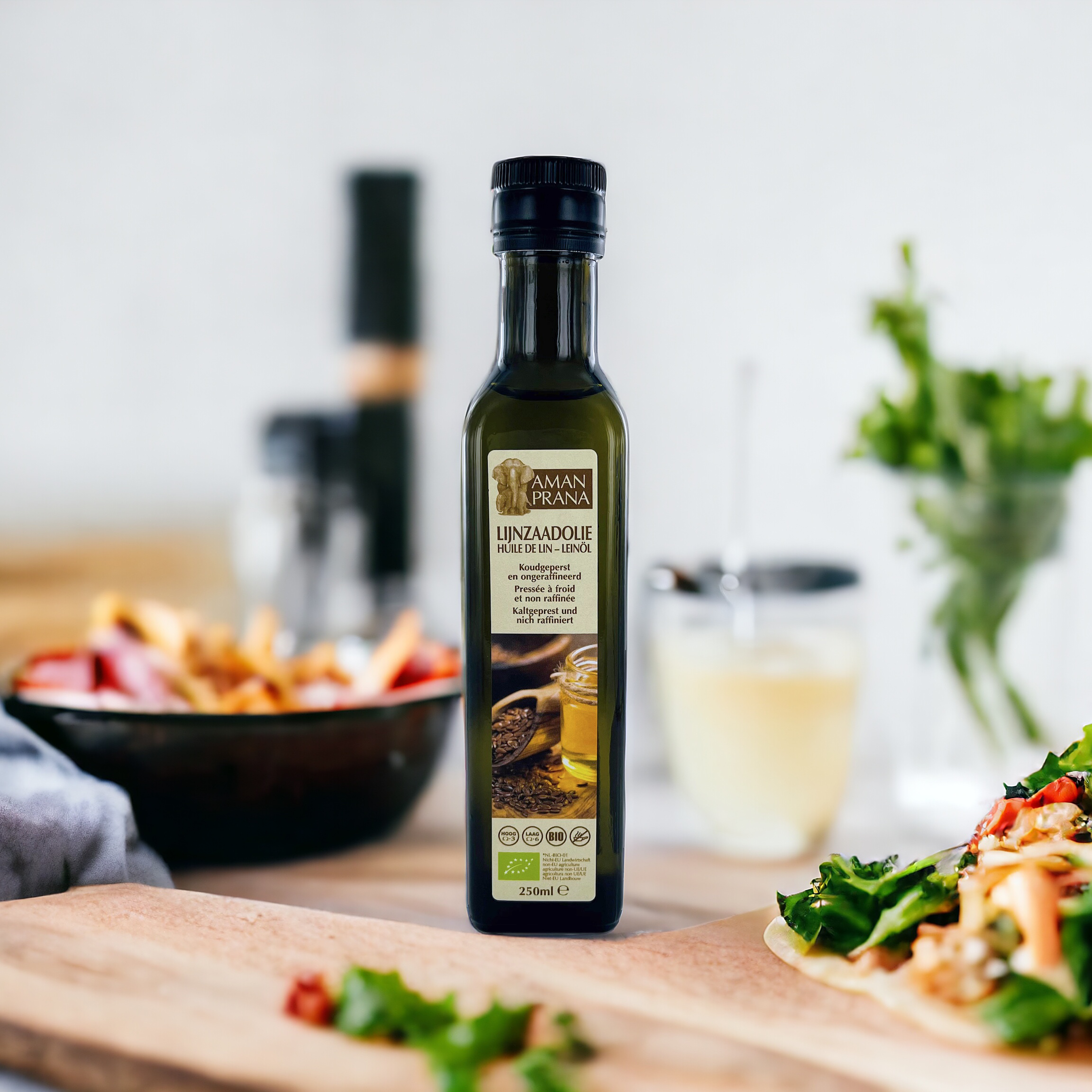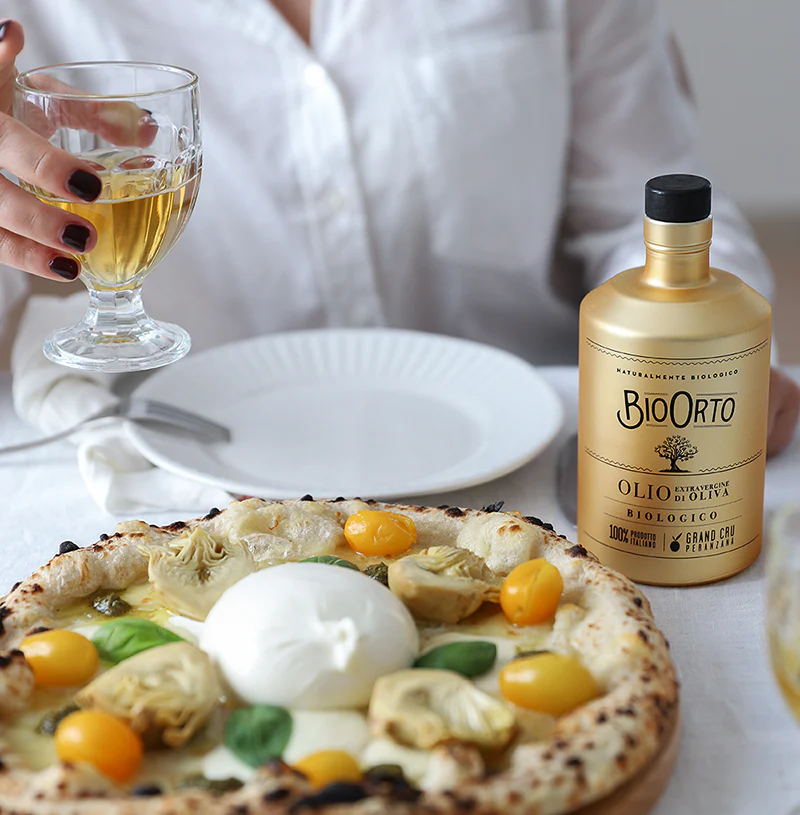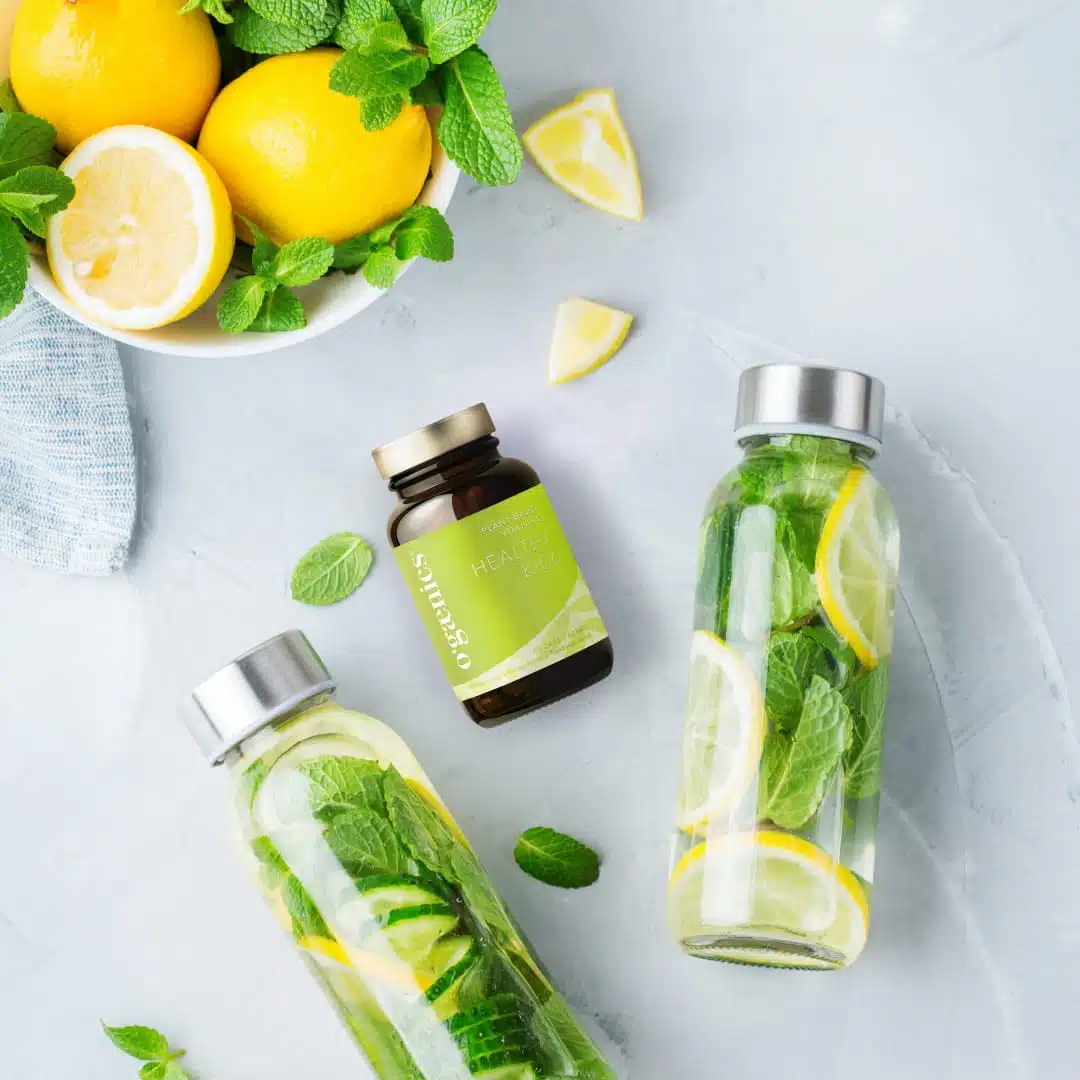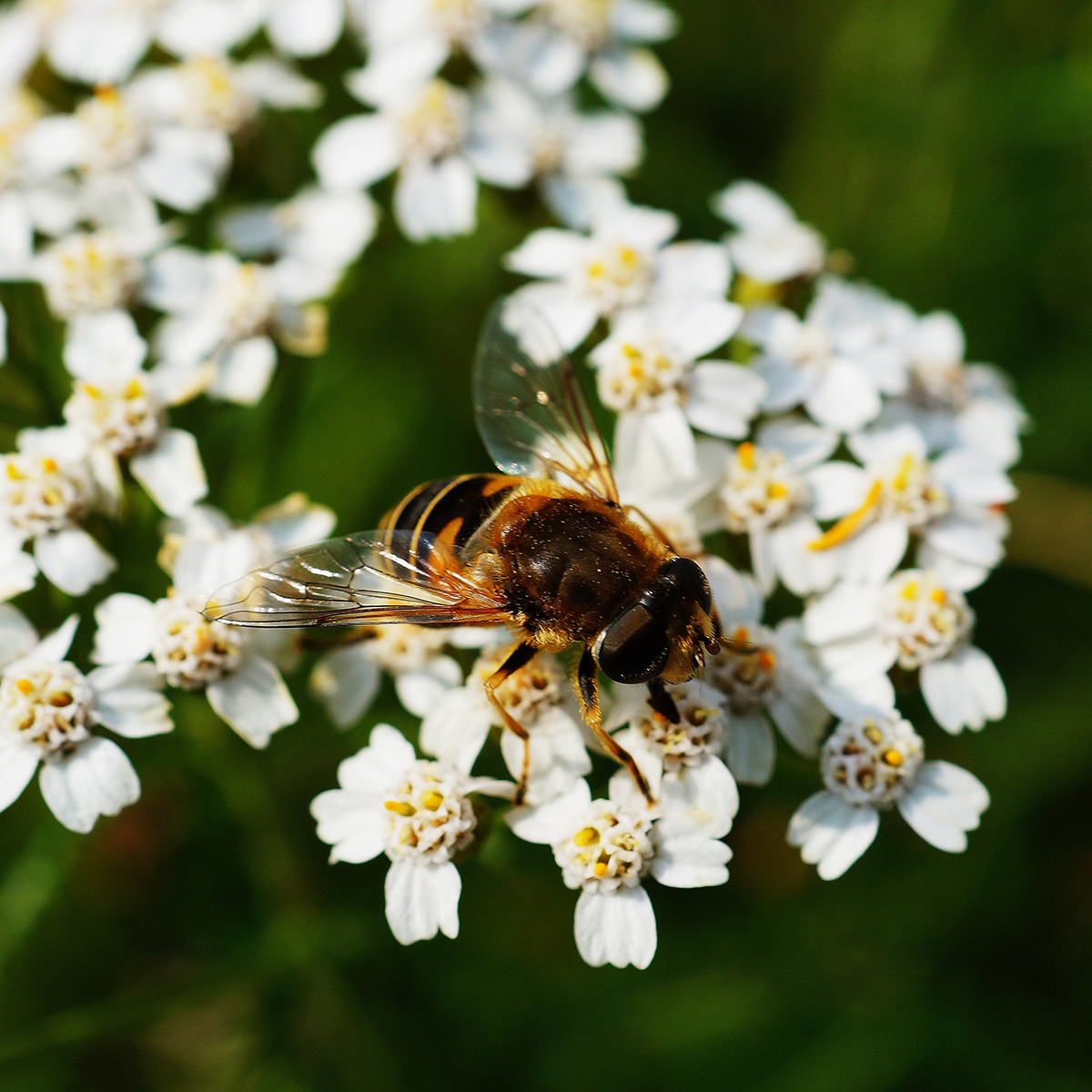Do you want to eat organic, but every time you go to the supermarket you hesitate in the fruit and vegetable department because the organic ones seem more expensive? Know that eating organic goes far beyond fruit and vegetables. There are many basic products in your kitchen that you can replace with organic options. These often last longer because the quality is better and they taste better, so you need less of them. So it is worth the investment. Besides, organic is better for our health and for the environment! We cleaned out our kitchen cupboards and made a handy list for you to make that sustainable switch to organic. In the hustle and bustle of life (and of the supermarket) you suddenly get confused and wonder why you would eat organic. Isn't everything nowadays very well controlled and traced from origin to shop? Is organic food really so much better? Yes, it is! Swedish research shows that you can already see the positive effects of organic food after a few weeks. A family with 3 children did the test by first eating non-organic and then 100% organic for a few weeks. In the urine, significantly less pesticides were found with an organic diet. This was particularly striking in the case of the children. Children are more sensitive to the amount of chemicals they ingest. On the other hand, by buying organic food you are supporting sustainable agriculture. In any case, it is better for the fruit and vegetable harvest in the long run not to use chemical pesticides and to grow with respect for the environment. And organic animals are well cared for with organic feed and sufficient space in the stable and outside, allowing them to display their natural behaviour and interact with their fellow animals. You do not have to change your entire kitchen right away. The most ecological thing to do is to first use up what you have. Then systematically replace your basic products with organic options. Empty your kitchen cabinets completely and check which products are (almost) obsolete. Make a shopping list with these products. Add the products you use a lot or cannot live without. Look for an organic substitute now so you can quickly switch when the product runs out.
The most obvious thing is to replace flour or meal with organic wholemeal flour. Whole grains are more nutritious than refined ones. Of course, there are also organic versions of white flour. If you want to experiment more, replace your basic flour by a mix of coconut flour, spelt flour, teff flour, quinoa flour, buckwheat flour, etc. You will also find yeast, bicarbonate and baking powder in organic versions.
Replacing ordinary granulated sugar with other sweeteners is really satisfying. It is easy and you get to know new sweet tastes. Coconut blossom sugar has a glycaemic index 70% lower than that of granulated sugar. You can find it as loose sugar, in cubes and in handy sticks. Maple syrup has a third less sugar content than granulated sugar. We know it especially from the delicious pancake stacks with syrup, but you can put it in everything you would otherwise use granulated sugar for. Fresh organic honey contains, in addition to sweetness, a lot of minerals and vitamins, so it also supports your immune system.
Coconut oil has a high burning point and is therefore ideal for baking, roasting or even frying. The coconut taste disappears as soon as the coconut oil is heated. So it is not the case that suddenly all your food tastes of coconut. If you do not want to take any risks, there is also deodorised coconut oil.
Buy organic extra virgin coconut oil if you want guaranteed quality. Non-organic brands sometimes use coconuts that have been left to lie around too long or have been badly dried. This can cause mould to develop, which is detrimental to the taste and quality of the coconut oil.
Another top product is of course olive oil. Buy organic olive oil if you want to be sure that it is unrefined and completely free of pesticides. You will also be supporting sustainable agriculture that is more respectful of nature.
Some dishes taste better when they are prepared in (cooking) butter. We found the solution in ghee or the Indian version of clarified butter. It has a very high firing point and a unique nutty flavour. Ghee contains hardly any lactose or casein. This also makes it a possible option for people with a cow's milk allergy. Making vinaigrettes or salad dressings? Balsamic and cider vinegar are versatile flavourings. Organic balsamic vinegar meets strict requirements. You can be sure that no pesticides, herbicides or insecticides were used in the cultivation of the grapes. Apple cider vinegar is very popular nowadays and available everywhere. Buy good, unprocessed and organic apple cider vinegar, preferably with 'the Mother'. This is a natural sediment consisting of numerous good bacteria and confirming the good nutrients in the apple vinegar. Organic herbs and spices are enormously tasteful. Only this will make you wonder why you did not buy them organically before. Besides, they are guaranteed pure and free of pesticides.
In our spice cabinet you will find black pepper, paprika, cinnamon, curry powder, curry, nutmeg, cumin, thyme, ginger, garlic powder, chilli, oregano, provencal herbs, dill, turmeric, cloves and cardamom.
A tasteful switch to organic can also be made with condiments or sauces. In the first place there is mustard and ketchup, but also pesto is a seasoning where the organic version offers an added value in taste and purity of the product.
Passata, pulpo di pomodoro or all kinds of tomato sauces are used a lot in today's kitchen. In a pasta dish, in oven dishes, in soups, in wok dishes; just think how many times you use it.
Choose organic tomato sauces in glass. The acidity of canned tomatoes can cause a reaction with the inner coating of the can. This releases extra bisphenol A or BPA which can leak into the food.
Organic in glass is a better option. You get the sunny taste of juicy, sun-ripened tomatoes! Cereals and pasta form a big part of our dishes. If you can make them organic or pesticide-free, you will make a big profit.
The pasta we usually eat is wheat pasta, made from white wheat flour and some eggs. Of course, you can also find organic versions of this. A healthier choice is wholemeal pasta or pasta made from spelt flour, buckwheat, peas, lentils, and so on.
There is also organic pasta without mycotoxins. These are toxic substances from moulds that can arise during the harvesting and storage of grain. Mycotoxins are currently linked to intolerances and gluten sensitivity. Pasta free of mycotoxins is interesting for people with sensitive intestines or for children.
Fan of pasta, but want something different? Oriental noodles are made of rice, whether or not combined with sweet potato, ginger, pumpkin or other ingredients. They are often quicker to prepare than standard pasta and offer a nice change.
Besides organic rice, there is also a range of (ancient) cereals with which you can vary, such as quinoa, millet, buckwheat, barley, couscous and kamut.
Salt cannot yet be certified organic, but there are numerous types that offer added value compared to standard kitchen salt.
Bamboo salt is sea salt that is traditionally roasted or baked in bamboo wood tubes in hot ovens in Korea. This gives the salt a high mineral content and has an alkalising effect on food. It was developed by Buddhist monks thousands of years ago as a 'health remedy' for the Korean people.
Khoisan is an unrefined salt with a coarse structure. It originates from South Africa where it is naturally filtered by limestone. It is a pure sea salt or fleur de sel with a refined taste. If you like to eat less salt, then Sal Verde or white thyme is a tasty salt substitute. Sal Verde is typical for Portuguese cuisine, where it is also called 'pure salt'. It has a fresh, spicy aroma that is easy to season your dishes with. As a result, you need less or even no salt.
Why should you eat organic?
Where do you start to make your kitchen more organic?
1. Flour, meal and baking products

2. Sugar
3. Frying and roasting
4. Balsamic vinegar, apple cider vinegar
5. Herbs and spices
6. Flavourings and sauces
7. Tomato purees and sauces

8. Pasta, noodles, rice, quinoa
9. Salt















The information below is required for social login
Sign In
Create New Account